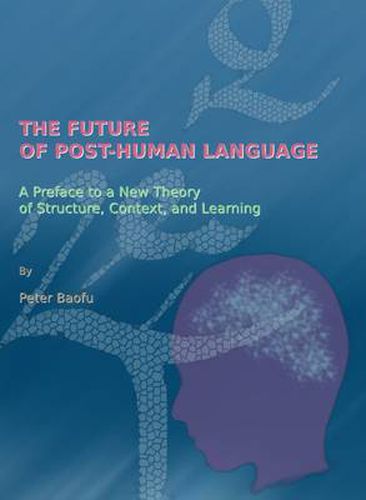Readings Newsletter
Become a Readings Member to make your shopping experience even easier.
Sign in or sign up for free!
You’re not far away from qualifying for FREE standard shipping within Australia
You’ve qualified for FREE standard shipping within Australia
The cart is loading…






To what extent is there really a universal structure, whether innate or not, of language for learning? Or conversely, is language learning mainly context-based? And, in the end, does the very nature of language delimit our mental world-such that the limits of my language mean the limits of my world or, in a different parlance, constitute the prison house of language ?Contrary to the conventional wisdom held by many in history, all these seemingly plausible views are highly misleading, to the extent that something vital is missing in the conventional debate, such that the nature of learning has yet to be more comprehensively and systematically understood.This is not to say, however, that the literature in the study of language (and other related fields) hitherto existing in history has been much ado about nothing. In fact, much can be learned from different theoretical approaches in the literature.The virtue of this book is to provide an alternative (better) way to understand the nature of learning, especially (though not exclusively) in relation to language-which, while incorporating the different views in the literature, transcends them all in the end, with the use of language and also beyond it. This inquiry may sound academic, but it has enormous implications not just for the narrow concern with the nature of language, but also, more importantly, for the larger concern with the nature of thinking, feeling, and doing in learning, both with the use of language and beyond it.If true, this seminal work will fundamentally change the way that we think, not only about the nature of language, in a small sense- but also about the nature of learning, with the use of language and also beyond it, from the combined perspectives of the mind, nature, society, and culture, for the human future and what I originally called its post-human fate, in a broad sense.
$9.00 standard shipping within Australia
FREE standard shipping within Australia for orders over $100.00
Express & International shipping calculated at checkout
To what extent is there really a universal structure, whether innate or not, of language for learning? Or conversely, is language learning mainly context-based? And, in the end, does the very nature of language delimit our mental world-such that the limits of my language mean the limits of my world or, in a different parlance, constitute the prison house of language ?Contrary to the conventional wisdom held by many in history, all these seemingly plausible views are highly misleading, to the extent that something vital is missing in the conventional debate, such that the nature of learning has yet to be more comprehensively and systematically understood.This is not to say, however, that the literature in the study of language (and other related fields) hitherto existing in history has been much ado about nothing. In fact, much can be learned from different theoretical approaches in the literature.The virtue of this book is to provide an alternative (better) way to understand the nature of learning, especially (though not exclusively) in relation to language-which, while incorporating the different views in the literature, transcends them all in the end, with the use of language and also beyond it. This inquiry may sound academic, but it has enormous implications not just for the narrow concern with the nature of language, but also, more importantly, for the larger concern with the nature of thinking, feeling, and doing in learning, both with the use of language and beyond it.If true, this seminal work will fundamentally change the way that we think, not only about the nature of language, in a small sense- but also about the nature of learning, with the use of language and also beyond it, from the combined perspectives of the mind, nature, society, and culture, for the human future and what I originally called its post-human fate, in a broad sense.